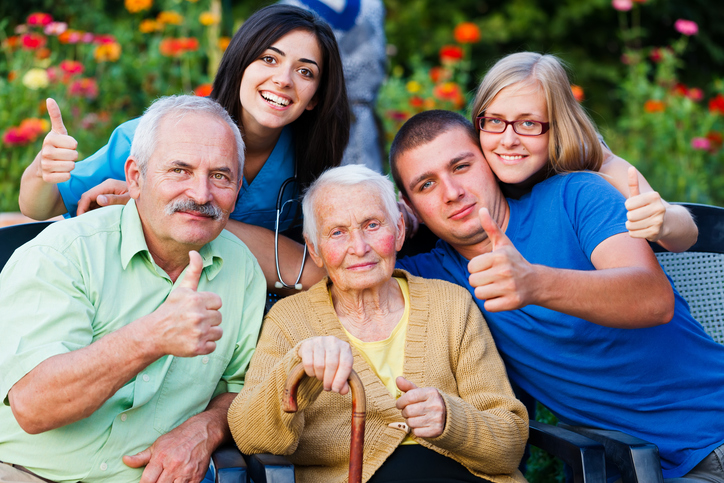Caring for an aging relative is not easy and it takes more than the desire to help a loved one in need. My siblings and I should know. For seven years, my sisters and I dealt with medical treatments, medications, Alzheimer’s care, helping with daily living needs, ran errands, you name it. If you’ve ever looked after an aging friend or family member, then you know the drill. But if you’re new to the world of care, you must know you have a lot to learn and more to do.
I believe children view their parents as fully capable and it’s difficult to imagine that a Mother or Father could be needy. That’s how it was with my family. My siblings and I held on the the perspective that “they existed” to meet our needs, not the other way around. However, when my Mother’s CHF ( Congestive Heart Failure) worsened and my Father’s Alzheimer’s chewed his mind and behavior, the siblings hastened to take control to keep both safe and sound at home.
For seven years, our parents were the focus. It seemed our lives took a back seat to theirs. But we figured, they gave us so many more years of care and love, it’s only fair and right to do the same, to give back. Since I know how difficult elder care is, and because there’s so much information, it’s often difficult for families to know where to begin when helping an aging loved one. So, I asked several colleagues at the Aging Council, “List a few skills that will help first-time caregivers to assist ones they love.”
Skills
Shannon Martin, Aging Wisely, says, “The top four skills for a caregiver are: organizational skills, advocacy, delegation–doing it all yourself is a disservice to a loved one, as well as yourself, and balance — take care to give care.
Team
Kim Crawford, M.D., AgeWell Solutions, believes, “One should get to know all doctors and all medications intimately, know 5 people who the family member cherishes and encourages them to communicate frequently. A pet works wonders to stave off loneliness and isolation. Arrange for help with the pet and be accessible, even for a 3 minute chat. It’s good to celebrate every single holiday.”
Checklist
Admond Fong, SeniorProviders.com, “Compile a checklist. The one thing people should know is that elder care is more than just health care issues. What happens to your loved one after the hospital? There are so many different services to consider. The ones that I recommend are the legal and financial planning aspect. My motto is always to plan for the worse but always hope for the best.”
Support
Dr. Eboni Green, Caregiver Support Services, “It is okay to ask for help in fact there is honor in it. Seek out opportunities to learn about the care of your loved one. Create a plan and share it. Involve siblings and family members from the start. Self-care is important. Make sure that you have a plan to care for yourself, write it down, and share it with your loved one.”
Laurie Miller, Apple Care and Companion, “Be a good listener and hear what your loved one is saying as well as what they don’t say. Be patient and encourage independence. Ask “permission” before you do anything. Do not talk “down” to your loved one, always remain respectful. Be patient…yes, I said that twice!”
Plan
Connie Chow, Daily Caring, “Getting started as a caregiver can be overwhelming. First, focus on getting a clear picture of your senior’s care needs. Then, estimate the costs and time needed to provide that level of care. Next, assess your own time, financial situation, and ability to contribute to their care. Now you’ll be able to create a realistic care plan and identify areas where you’ll need additional support.”
If you’re starting out in giving care, welcome each day with new set of eyes and enjoy the journey. When you get to the other side of the process, I know you’ll be grateful.
Carol Marak is the Editor of SeniorCare.com and a contributor to Huffington Post, About.com, Examiner, Homecare Magazine and ASAging among others






Add Your Voice
0 Comments
Join the Discussion